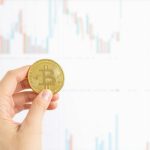Unlocking the Secrets of Reliable Gold Dealers in 2029
As gold continues to shine as a coveted investment in 2029, discerning investors face the critical challenge of identifying trustworthy gold dealers. The gold market’s evolving dynamics demand a fresh approach to vetting sellers, ensuring your physical or digital gold assets are genuine, fairly priced, and securely transacted. This guide presents expert insights to navigate the complexities and confidently select top gold dealers who embody integrity and professionalism.
Beyond the Shine: What Makes a Gold Dealer Truly Trusted?
Trust in gold dealers transcends mere reputation; it hinges on transparency, certification, and adherence to stringent industry standards. A reputable dealer will offer verifiable authentication for gold products, including hallmarking by recognized assay offices, as well as clear provenance documentation. Furthermore, compliance with regulations such as the London Bullion Market Association (LBMA) standards or local governing bodies safeguards buyers against counterfeit risks and unfair practices.
How Can You Verify the Authenticity and Reliability of a Gold Dealer?
Ask critical questions about the dealer’s licensing, track record, and customer feedback. Trusted dealers often showcase third-party certifications and engage in transparent pricing tied to real-time market valuations. Utilizing resources like the Top 7 Gold Dealers Online: How to Choose Safely in 2029 can provide comparative insights into dealer reliability and service quality. Additionally, visiting physical locations or requesting live video demonstrations of gold items can enhance confidence in authenticity.
Technology and Transparency: The New Pillars of Trust in Gold Sales
In 2029, cutting-edge technology plays a pivotal role in elevating trustworthiness among gold dealers. Blockchain-based certifications and digital ledger tracking offer immutable proof of gold origin and ownership history. Dealers integrating these innovations signal a commitment to transparency and reduce the risk of fraud. Buyers should seek dealers who offer digital certificates and real-time tracking to align with modern security expectations.
Insider’s Tips: Practical Strategies from Experienced Investors
Experienced investors advise diversifying your gold sources to mitigate risk. Engaging with dealers who specialize in different gold forms—such as bullion bars, coins, or ETFs—can optimize portfolio resilience. It’s also wise to scrutinize buyback policies and after-sales support, as these reflect a dealer’s confidence in their products. For a comprehensive understanding of gold investment vehicles, including futures and ETFs, explore the Exploring Types of Gold Investments: Bullion, Futures, ETFs guide.
Embracing Community Wisdom: Share Your Trusted Dealer Experiences
Have you discovered a gold dealer who exceeded your expectations in 2029? Sharing your experiences can empower fellow investors to avoid pitfalls and make informed choices. Join the conversation by commenting below or sharing this article with your network to foster a community grounded in trust and expertise.
For authoritative insights on gold market trends and dealer reputations, consider consulting the London Bullion Market Association’s resources at LBMA Official Site, which remains a cornerstone of industry standards and best practices.
How Technology Enhances Gold Dealer Trustworthiness
Reflecting on my recent experience purchasing gold, I realized technology’s transformative impact on dealer transparency. One dealer I engaged with utilized blockchain-based certificates, which allowed me to verify the origin and authenticity of my gold bars instantly. This digital ledger system not only reassured me but also streamlined the entire buying process. If you haven’t explored this technology yet, I highly recommend considering dealers who integrate such advanced solutions — it really sets them apart in today’s market.
Moreover, digital certificates often come with real-time tracking features, giving buyers ongoing confidence in their investment’s provenance. This aligns perfectly with the growing demand for secure, verifiable transactions in the precious metals market. For those who want to dive deeper, the London Bullion Market Association (LBMA) offers excellent educational resources on technological advancements and certification standards, which I found invaluable while making informed decisions (LBMA Official Site).
Personal Insights: Why Buyback Policies Matter More Than You Think
Early on, I underestimated buyback policies. One memorable lesson was when I tried to resell gold coins to a dealer who had unclear or no buyback guarantees. The process was frustrating and time-consuming, highlighting the importance of choosing dealers who not only sell gold but also stand behind their products with fair and transparent buyback options. This not only protects your investment but also offers peace of mind if you decide to liquidate.
In my journey, I found that dealers who specialize in diverse gold products—whether bullion bars, coins, or ETFs—often provide flexible buyback terms. This flexibility can be a significant advantage, especially when market conditions fluctuate. For those interested in understanding different gold investment types and their implications, I recommend reading Exploring Types of Gold Investments: Bullion, Futures, ETFs to build a robust perspective.
What Are Your Criteria for Choosing a Trusted Gold Dealer?
Thinking about your own investment journey, what are the key factors you prioritize when selecting a gold dealer? Is it certification, price transparency, technology integration, or customer service? I’d love to hear your thoughts and experiences in the comments below. Sharing these perspectives can create a valuable community resource for all of us navigating the gold market in 2029.
Building Trust Through Community and Knowledge Sharing
Beyond certifications and technology, I’ve found that community feedback often reveals hidden gems—dealers who genuinely value customer relationships and uphold high ethical standards. Engaging with fellow investors via forums or trusted platforms can provide insights not found in official certifications alone. This collective wisdom complements formal due diligence beautifully.
If you’re looking to expand your knowledge or explore trusted dealers with proven track records, I encourage you to check out Top 7 Gold Dealers Online: How to Choose Safely in 2029. It’s a practical starting point that helped me quickly narrow down my options and focus on dealers with strong reputations and transparent practices.
Decoding Advanced Verification Techniques: How Experts Authenticate Gold Beyond the Surface
In 2029, the sophistication of gold authentication has transcended traditional assays and hallmarking. Expert dealers now employ multifaceted verification approaches integrating non-destructive testing methods like X-ray fluorescence (XRF) spectrometry and laser-induced breakdown spectroscopy (LIBS). These technologies provide in-depth compositional analysis and purity verification without damaging the precious metal, ensuring that buyers receive exactly what they pay for.
Moreover, dealers increasingly utilize microscopic imaging to detect microstructural anomalies indicative of counterfeit or recycled metals. Combining these scientific methods with blockchain-backed provenance data creates a robust, layered defense against fraud. This fusion of scientific rigor and digital transparency is a hallmark of reputable dealers who prioritize buyer confidence above all.
How Do Blockchain-Enabled Provenance Systems Mitigate Gold Market Fraud Risks?
Blockchain provenance systems act as decentralized, tamper-proof ledgers that chronicle every transaction and transformation the gold undergoes—from mining through refining, distribution, and final sale. This immutable record guarantees that each gold item’s history is transparent and verifiable, significantly reducing risks of theft, adulteration, or misrepresentation.
For instance, the London Bullion Market Association (LBMA) has been pioneering initiatives to integrate blockchain technology within the Good Delivery framework, enhancing traceability standards globally. These efforts not only protect investors but also promote ethical sourcing, a growing concern among conscientious buyers.
Leveraging Artificial Intelligence and Machine Learning to Predict Market Trends and Dealer Reliability
Beyond authentication, artificial intelligence (AI) and machine learning (ML) algorithms are revolutionizing how investors assess gold dealers and market trajectories. Sophisticated AI platforms analyze vast datasets, including historical pricing, geopolitical events, dealer transaction histories, and customer feedback patterns to forecast market fluctuations and identify trustworthy dealers with consistent performance and transparency.
This predictive capability empowers investors to make informed decisions about timing purchases or sales and selecting dealers who demonstrate integrity and adaptability. Notably, some cutting-edge platforms provide real-time alerts on suspicious dealer activities or emerging market risks, offering an additional layer of protection for investors wary of volatile conditions.
Expert Panel Insights: Navigating Regulatory Complexities and Ethical Sourcing in 2029
Industry experts emphasize that the evolving regulatory landscape requires dealers to maintain rigorous compliance not just with local laws but also international frameworks such as the Responsible Jewellery Council (RJC) Code of Practices. Compliance ensures that dealers adhere to anti-money laundering (AML) directives, conflict-free sourcing mandates, and environmental sustainability norms.
Ethical sourcing has become a non-negotiable factor for many investors who demand traceability from mine to market. Dealers excelling in this arena often provide detailed reports and certifications vetted by third-party auditors, ensuring that their gold does not finance conflict or environmental degradation.
Investors aiming to deepen their understanding of these compliance frameworks can explore resources like the Responsible Jewellery Council Official Site, which offers comprehensive guidelines and certification details.
Community Wisdom in Action: How Peer Reviews and Expert Forums Refine Gold Dealer Selection
While formal certifications and technology-driven verifications are invaluable, seasoned investors often turn to curated community forums and expert panels for nuanced dealer assessments. Platforms specializing in precious metals investment facilitate discussions where users share first-hand experiences, uncovering subtle dealer behaviors such as responsiveness, after-sales service quality, and buyback flexibility that might not be evident through official channels.
Engaging actively in these communities can reveal emerging trusted dealers and flag those with deteriorating reputations. For those interested, the Top 7 Gold Dealers Online: How to Choose Safely in 2029 article includes references to several robust community-driven feedback mechanisms.
What Emerging Technologies Will Further Transform Gold Dealer Transparency in the Next Decade?
Looking forward, experts anticipate that quantum computing and enhanced IoT (Internet of Things) sensors embedded in gold products will elevate transparency to unprecedented levels. Quantum encryption could secure digital certificates against hacking, while IoT devices might provide real-time environmental data about the gold’s storage conditions, ensuring integrity throughout the supply chain.
Keeping abreast of these innovations will be vital for investors committed to staying ahead in the dynamic gold market landscape.
If you’re eager to harness cutting-edge insights and connect with leading experts, consider subscribing to specialized gold investment newsletters or joining professional networks focused on precious metals. Your journey to mastering gold dealer trustworthiness in 2029 is an ongoing evolution—stay informed, stay empowered.
Quantum Leaps and IoT: The Next Frontier in Gold Dealer Transparency
As the gold market progresses, the integration of quantum computing and Internet of Things (IoT) technology promises to redefine transparency standards for dealers and investors alike. Quantum encryption techniques are poised to fortify digital certificates against cyber threats, ensuring the inviolability of provenance records. Concurrently, IoT-enabled smart tags embedded in gold products can provide continuous environmental monitoring, guaranteeing optimal storage conditions throughout the supply chain. These advancements offer an unprecedented layer of security and traceability that discerning investors must consider when selecting dealers in this rapidly evolving landscape.
RegTech Innovations: Streamlining Compliance and Ethical Assurance
The emergence of Regulatory Technology (RegTech) platforms tailored for precious metals markets is revolutionizing how dealers demonstrate compliance with complex international frameworks. By automating anti-money laundering (AML) checks, conflict-free sourcing validations, and sustainability audits, these platforms enable dealers to provide real-time compliance reporting to clients. This not only mitigates regulatory risks but also enhances investor confidence in ethical sourcing practices, which remain a critical consideration in 2029’s conscientious investment environment.
How Can Investors Utilize AI-Driven Analytics to Enhance Gold Dealer Due Diligence?
Investors increasingly leverage AI-driven analytics platforms to dissect vast troves of data encompassing dealer histories, transaction transparency, and market sentiment. These systems use natural language processing and pattern recognition to flag anomalies such as inconsistent pricing, delayed shipments, or customer dissatisfaction trends. By integrating these insights, investors can perform a granular due diligence process far beyond traditional methods, enabling them to identify dealers who consistently maintain integrity and service excellence.
For an authoritative exploration of AI applications in precious metals compliance and market analysis, review the comprehensive studies published by the PwC AI in Financial Services Report. This resource elucidates how cutting-edge technologies are reshaping investment strategies and regulatory adherence.
Engage with Our Expert Community and Elevate Your Gold Investment Strategy
To harness these advanced insights and stay abreast of emergent trends, we invite you to join our specialized forum where seasoned investors and technologists converge. Participate in deep-dive discussions, access exclusive reports, and collaborate on refining dealer vetting methodologies. Your involvement will not only sharpen your acumen but also contribute to a collective intelligence that elevates the gold investment ecosystem.
Frequently Asked Questions (FAQ)
How can I be sure a gold dealer is legitimate and not selling counterfeit products?
To verify legitimacy, check for recognized certifications such as LBMA accreditation, licensing, and third-party assay reports. Trusted dealers provide transparent provenance documentation, hallmarking by reputable assay offices, and often use advanced technologies like blockchain-based certificates and non-destructive compositional analysis methods (e.g., XRF, LIBS). Engaging with dealers who offer live product demonstrations or physical inspections further assures authenticity.
Why is blockchain technology important for gold provenance?
Blockchain offers an immutable, decentralized ledger that records every stage of a gold item’s journey from mine to market. This transparency reduces fraud risk, verifies ethical sourcing, and enables buyers to authenticate ownership history reliably. Its tamper-proof nature reassures investors of the gold’s authenticity and compliance with industry standards.
What role do buyback policies play when choosing a gold dealer?
Buyback policies reflect a dealer’s confidence in their products and provide liquidity options for investors. Clear, fair buyback terms protect your investment by assuring you can resell gold at transparent prices, mitigating potential losses or complications during liquidation. Flexible policies across various gold forms (bullion, coins, ETFs) offer strategic advantages amid market fluctuations.
How do AI and machine learning enhance gold dealer reliability assessments?
AI and ML analyze extensive datasets, including dealer transaction histories, market trends, and customer feedback, to identify trustworthy dealers and detect anomalies such as pricing inconsistencies or delayed shipments. These technologies enable more nuanced due diligence, helping investors predict market movements and choose dealers with proven integrity and service quality.
What should investors know about ethical sourcing and regulatory compliance in gold trading?
Ethical sourcing ensures gold is conflict-free and environmentally sustainable, aligning with international frameworks like the Responsible Jewellery Council (RJC) Code of Practices. Compliance with anti-money laundering (AML) and sustainability audits is critical. Investors should seek dealers who provide third-party verification of ethical sourcing and transparent regulatory adherence to minimize reputational and financial risks.
How can community feedback complement formal certifications when selecting a gold dealer?
Community reviews and expert forums reveal practical insights on dealer responsiveness, customer service quality, and buyback flexibility that certifications alone may not capture. Engaging with trusted investor communities uncovers emerging reputable dealers and flags those with declining trustworthiness, offering a richer, real-world perspective for informed decision-making.
What emerging technologies are expected to further improve gold dealer transparency?
Quantum computing promises enhanced encryption for digital certificates, preventing cyber tampering, while IoT-enabled smart tags embedded in gold products will provide real-time environmental monitoring during storage and transit. These innovations will raise transparency and security standards, giving investors unprecedented assurance over their gold investments.
How do RegTech platforms aid gold dealers in compliance and reporting?
RegTech automates complex regulatory checks such as AML verification, conflict-free sourcing validation, and sustainability audits. This enables dealers to provide real-time compliance reporting, reducing risks and increasing investor confidence in ethical and legal trading practices.
Is it better to buy gold physically or through ETFs or futures?
Each investment vehicle has unique advantages: physical gold offers tangible ownership and security; ETFs provide liquidity and ease of trading; futures allow speculation on price movements but involve higher risk. Diversifying across these vehicles, supported by trustworthy dealers, optimizes portfolio resilience and aligns with individual risk tolerance and investment goals.
How can I stay updated on the latest trends and trusted gold dealers?
Subscribe to specialized precious metals newsletters, join professional investment forums, and follow authoritative industry bodies for regular updates. Engaging with expert communities and reviewing current analyses ensures you remain informed about innovations, market shifts, and dealer reputations.
Trusted External Sources
- London Bullion Market Association (LBMA) – The LBMA sets global standards for gold trading, offering authoritative certification frameworks, ethical sourcing guidelines, and technological advances like blockchain integration that underpin dealer trustworthiness.
- Responsible Jewellery Council (RJC) – Provides comprehensive codes of practice and certification programs focused on ethical sourcing, sustainability, and regulatory compliance, essential for understanding responsible gold supply chains.
- PwC AI in Financial Services Report – This in-depth analysis explores how artificial intelligence transforms investment due diligence, fraud detection, and compliance in financial markets, including precious metals.
- World Gold Council – Offers extensive research on gold market trends, investment vehicles, and consumer behavior, delivering data-driven insights crucial for strategic gold investment decisions.
- International Precious Metals Institute (IPMI) – An industry body providing technical resources on gold authentication technologies, regulatory updates, and best practices in precious metals trading.
Conclusion
In 2029, navigating the gold market demands a sophisticated blend of traditional due diligence, cutting-edge technology adoption, and ethical vigilance. Trusted gold dealers distinguish themselves through transparent provenance backed by blockchain certification, rigorous scientific authentication methods, and adherence to evolving regulatory frameworks. Integrating AI-driven analytics and engaging with knowledgeable communities further empowers investors to make informed, secure decisions. Whether investing in physical bullion, coins, ETFs, or futures, prioritizing dealers who combine integrity, technological innovation, and ethical sourcing is paramount. Embrace these expert insights to confidently build and protect your gold portfolio in a dynamic market environment. Share your experiences, explore related expert content, and stay connected to the evolving landscape of gold investment to maximize your success and security.










